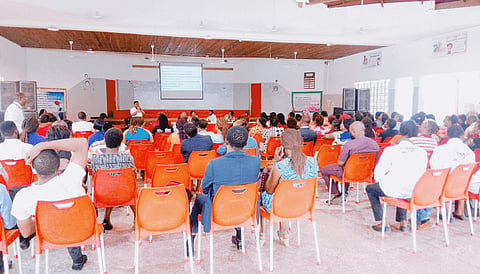

The Parents Teachers’ Association (PTA) has publicly endorsed the Nigerian federal government's recent policy that sets 18 as the minimum age for candidates to take the West African Senior School Certificate Examination (WASSCE) and the National Examination Council (NECO) exams.
Education Minister Tahir Mamman announced the policy, emphasizing that it is designed to align with educational standards that require students to complete a full academic trajectory before attempting these exams.
The PTA's national president expressed strong support for the initiative, stating, “When students sit for WASSCE or NECO at 18 years old, they have reached an age of maturity. Such exams are not for immature students.”
He further noted that students should ideally be 18 before entering university.
However, the policy has sparked debate among educational stakeholders. Public analyst Chidi Chinedu raised concerns regarding the practicality and fairness of the age restriction, particularly in the context of Nigeria's unique educational landscape.
He pointed out that many students progress quickly through their education, sometimes skipping grades, which could place them in a position where they are ready for higher education before reaching the age of 18.
Chinedu argued that imposing a blanket age limit without considering these factors may lead to complications for academically advanced students who are between the ages of 15 and 17.
Chinedu also highlighted the importance of considering the current societal context, where young people are often more exposed and aware due to technological advancements.
He suggested that many students aged 15 to 17 could handle the demands of higher education effectively. He concluded that if an age limit is to be enforced, it should encompass lower educational levels to create a fair and enforceable standard.
